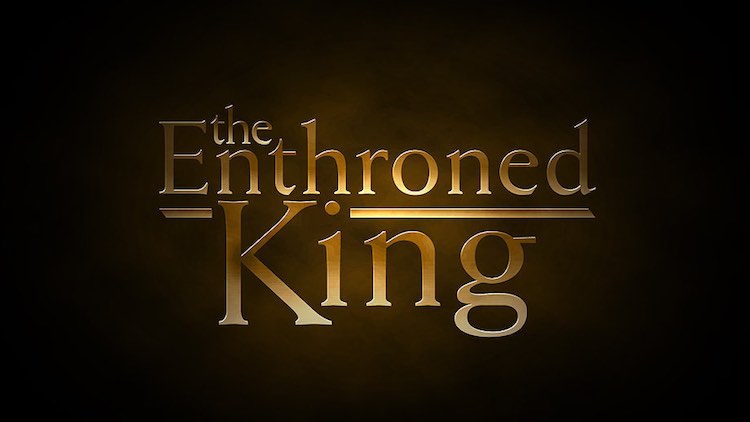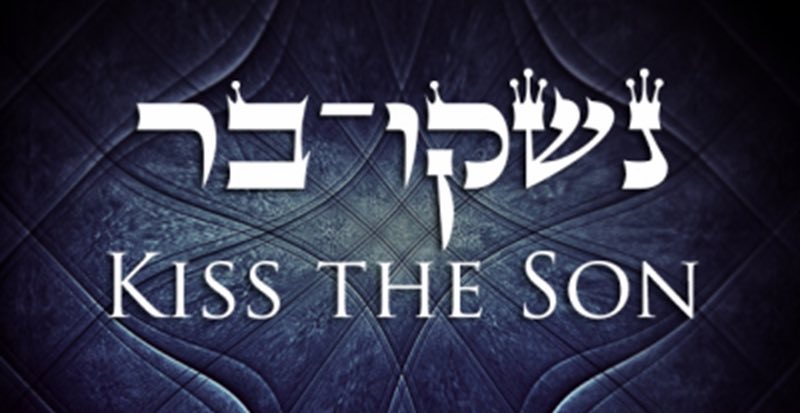The current situation in the country of Turkey has been causing many to wonder what the future holds for the Turkish people. The coup attempt in July of this past summer was an event that captured the international media, however, this was only one major event during an ongoing power struggle in that country.
Over the past few years hundreds of journalists, judges, and generals have been arrested and jailed. In the past four months over 110,000 Turks have been fired from government positions such as teachers, judges, police and military personnel on the basis of disloyalty to the current regime. In the past few months there have also been tens of thousands of people detained and arrested on terrorist charges; people who are considered enemies of the state. The current president of Turkey has been ruling with an iron fist. Those who do not support him are identified as traitors and are dealt with in a manner that he sees fit.
Unfortunately, the events in Turkey are almost common place in the Middle East. The quest for power and control is common world-wide, however, the volatility of the Middle East seems to erupt more steadily in relation to the rest of the world. Although the country of Turkey is often looked at as an example of democracy in the Middle East, the history of the Turkish people has a long legacy of struggles for power.
Lessons from History
I’m currently reading a book by Lord Kinross called The Ottoman Centuries. As I read the pages of this book, which spans centuries of history, I feel like I could be reading about Turkey or any Middle Eastern nation today. The sultans who ruled during the days of the Turkish Ottoman Empire often killed their own brothers to secure their position and eliminate any competition. The sultans generally ruled without mercy, striking down a family member or trusted official if they ever appeared to be disloyal. Therefore, as I read about the current situation in Turkey, it only reminds me of the history in the region and its rulers when everyone was considered either a loyalist or a traitor.
The struggle for power in Turkey is also very similar to what we read about in the pages of the Bible. The Bible documents many kings who rose and fell throughout history. There was often a battle over who would be the next ruler and the process of achieving one’s position was often at the expense of the life of another. There can be only one king in the kingdom! In this week’s Torah Portion we read about the significance of wisely choosing the next ruler in the kingdom.
Watch this brief video for an overview of this week’s Torah Portion commentary
The Life of Sarah
The name of this week’s Torah Portion is “חיי שרה” – “chay’ei Sarah,” which means “the life of Sarah.” The irony in this title is that we actually read about the death of Sarah at the beginning of this week’s reading. Sarah died at the age of 127 and Abraham buried her in the Cave of Machpelah.
At the end of this week’s Torah Portion, we also read about the death of Abraham. Before Abraham died, however, Abraham made sure to clearly communicate who was to carry on his name and who was to rule in his stead:
Now Abraham gave all that he had to Isaac; but to the sons of his concubines, Abraham gave gifts while he was still living, and sent them away from his son Isaac eastward, to the land of the east. – Gen. 25:5-6
Abraham had sent away every other person with a possible right to his name, a legal right to his inheritance, or a connection to the blessing that God had bestowed upon him. Abraham made sure that Isaac was set apart as the one to bear his name through the inheritance.
The Transfer of Power
The releasing of an inheritance from a father to a son is much greater than simply finances and real estate. A father is not only declaring how his wealth will be distributed through an inheritance but also who will carryon power to make decisions in his name. Abraham understood this and made it clear to everyone around him that Isaac alone was to bear the power of all that Abraham had. We see evidence of this through the words of Abraham’s most trusted servant when he was talking to Laban and his family: “Now Sarah my master’s wife bore a son to my master in her old age, and he has given him all that he has.” (Gen. 24:36) Isaac was given full authority in his father’s name.
The full transfer of power and authority from Abraham to Isaac was necessary in keeping with all of the promises that God had made to Abraham. If Abraham had not sent Ishmael and his other sons away, there could easily have been a family feud regarding how the estate should be divided up between them and who was to be the ultimate bearer of his name. Abraham settled this before he left this earth by choosing Isaac and the LORD also confirmed this: “It came about after the death of Abraham, that God blessed his son Isaac; and Isaac lived by Beer-lahai-roi.” (Gen. 25:11) Isaac was Abraham’s chosen son and all of God’s blessing would continue through him.
Abraham was proactive in transferring his powers to the next generation and this led to a smooth transition. In this week’s corresponding reading from the prophets we read about the last days of King David and the confusion which occurred in his kingdom because of his hesitancy in declaring who would reign in his place.

Struggle in the Kingdom
King David had numerous wives and numerous sons. Two of David’s oldest sons were murdered while King David was still alive. David’s son Absalom killed his brother Amnon for raping his sister Tamar (2 Samuel 13). Absalom was later killed by David’s general Joab when Absalom declared himself king and tried to take over the kingdom (2 Samuel 18:14). King David was an amazing general on the battle field but lacked courage in leading his own family. The result was tragedy and confusion.
Before his death, David hesitated in declaring his successor to the throne which led to chaos in the kingdom and the self-promotion of one of his sons:
Now Adonijah the son of Haggith exalted himself, saying, “I will be king.” So he prepared for himself chariots and horsemen with fifty men to run before him. His father had never crossed him at any time by asking, “Why have you done so?” – 1 Kings 1:5-6
Adonijah saw the void of leadership in the kingdom as his father grew old and jumped on the opportunity to make himself king. David was silent.
Silence of a Father
There is a time to be silent and a time to speak. If any of us are silent when we have the right and responsibility to influence the outcome for good, everyone will suffer. Silence is often a result of fear and a lack of courage. We must never be silent when we have the opportunity to do good on behalf of others.

Thankfully, God did not let David sit quietly on his bed of silence. Nathan the prophet saw what Adonijah was doing by exalting himself as king and quickly acted to counter this false regime:
Then Nathan spoke to Bathsheba the mother of Solomon, saying, “Have you not heard that Adonijah the son of Haggith has become king, and David our lord does not know it? So now come, please let me give you counsel and save your life and the life of your son Solomon. – 1 Kings 1:11-12
Nathan the prophet was shrewd and wasted no time. Nathan the prophet knew that Solomon was to be king and acted wisely, together with Bathsheba, in order to turn the king’s heart and cause him to step out of his silence and declare Solomon king in his stead.
Royalty or Offenders
When Bathsheba went before the king she told him about Adonijah’s scheming to make himself king and reminded King David that he had already told her that Solomon would be king. Bathsheba closed her argument with these words:
As for you now, my lord the king, the eyes of all Israel are on you, to tell them who shall sit on the throne of my lord the king after him. Otherwise it will come about, as soon as my lord the king sleeps with his fathers, that I and my son Solomon will be considered offenders.” – 1 Kings 1:20-21
Bathsheba understood that if her son was not made king, Solomon and herself would be treated as a threat to the kingdom.
Bathsheba told King David that after he dies, she and Solomon would be considered “offenders” if Solomon was not declared king. The word used for “offenders” is the Hebrew word “חטאים” – “cha’ta’im,” which is literally translated “sinners, offenders, or criminals.” Their relationship with King David as wife and son gave them the privileged position of heir to the throne, however, if Solomon was not made king, they would be considered as criminal offenders. There was no middle ground for them; they would either be counted as royalty or offenders.
The Father’s Choice
Both Bathsheba and Nathan the prophet explained to King David what Adonijah had done and implored King David to act. David understood the choice before him and rose to the occasion:
Then King David said, “Call Bathsheba to me.” And she came into the king’s presence and stood before the king. The king vowed and said, “As the LORD lives, who has redeemed my life from all distress, surely as I vowed to you by the LORD the God of Israel, saying, ‘Your son Solomon shall be king after me, and he shall sit on my throne in my place’; I will indeed do so this day.” – 1 Kings 1:28-30
King David realized that his time was short and that he could be silent no longer. He declared that Solomon would reign in his stead.
King David acted immediately and gave the order to make Solomon King of all Israel. King David’s officials acted in accordance with his word and properly anointed Solomon as King of Israel:
So Zadok the priest, Nathan the prophet, Benaiah the son of Jehoiada, the Cherethites, and the Pelethites went down and had Solomon ride on King David’s mule, and brought him to Gihon. Zadok the priest then took the horn of oil from the tent and anointed Solomon. Then they blew the trumpet, and all the people said, “Long live King Solomon!” All the people went up after him, and the people were playing on flutes and rejoicing with great joy, so that the earth shook at their noise. – 1 Kings 1:38-40
Whereas Adonijah had proclaimed himself king, Solomon was made king by the order of King David. The people and King David’s key officials understood the king’s choice and Solomon alone was recognized as King of Israel. Adonijah was eventually killed for an act of treason (1 Kings 2:19-27).

The King & The Kingdom
In kingdom life there is only one king of the kingdom and everyone else is considered either a loyalist or traitor. One is either the king or a subject of the king. There is no middle ground in the kingdom.
In considering the nations and the kingdoms of this world, we constantly see many struggles for power. While we acknowledge that God has established earthly rulers to administer justice and keep order, all earthly kings and rulers must bow the knee to the King of Kings or they will be guilty of being traitors in His Kingdom.
The Raging of the Nations
In the book of Psalms we are given a prophetic picture of the continual struggle in the world in which we live:
Why are the nations in an uproar and the peoples devising a vain thing? The kings of the earth take their stand and the rulers take counsel together against the LORD and against His Anointed, – Ps. 2:1-2
The kings and rulers of this earth are portrayed as those who take their stand against the LORD Himself and His Anointed One.
Psalm chapter two is one of the clearest prophetic Scriptures which speaks of the Messianic Kingdom of our LORD. In this psalm there is a very clear depiction of a King (the “Anointed” One) who will rule on this earth with complete authority:
He who sits in the heavens laughs, the Lord scoffs at them. Then He will speak to them in His anger and terrify them in His fury, saying,“But as for Me, I have installed My King upon Zion, My holy mountain.”
“I will surely tell of the decree of the LORD: He said to Me, ‘You are My Son, today I have begotten You. ‘Ask of Me, and I will surely give the nations as Your inheritance, and the very ends of the earth as Your possession. You shall break them with a rod of iron, You shall shatter them like earthenware.’” – Psalm 2:4-9
The LORD has declared that His Son will be King in Zion and the nations will be the King’s inheritance. The LORD has not been silent but has spoken through His Word and made it clear regarding the anointing of His King!
Kiss the Son
There is one God, the Creator of the universe, and He has determined that His Son will be King. The residents of this earth have a choice to make as outlined by the LORD Himself:
Now therefore, O kings, show discernment; take warning, O judges of the earth. Worship the LORD with reverence and rejoice with trembling. Kiss the Son, that He not become angry, and you perish in the way, for His wrath may soon be kindled. How blessed are all who take refuge in Him! – Psalm 2:10-12
God has made an offer to all kings and rulers on this earth, to honor His Son the King or to face His wrath.

The raging of the nations and the power struggles within the kingdoms of this world are a constant reminder that there is a King and a Kingdom yet to be fully realized. In the first century, the disciples of Yeshua recognized that the struggle that they witnessed in their own nation and with its rulers was a spiritual battle against Yeshua as King (Acts 4:23-31). We are of course to recognize and respect the earthly powers that God has established on this earth but beyond this we must recognize that God has established His Son as the ultimate King of all the earth.
Every man, woman, king, and president will one day have to answer to the King of Kings. There is one King, Yeshua, and each one of us will stand before Him one day as either royalty or an offender. It is your choice. Choose wisely! Choose royalty!
Shabbat Shalom!
If you enjoyed reading this article, share it today with friends! We also invite you to sign up for our weekly Torah Portion commentary on the sidebar to the right.
Help keep our weekly commentaries free and available to all. Click here to donate today:
Torah Portion: Gen. 23:1 – Gen. 25:18
Haftara: 1 Kings 1:1-31
Return to Torah Portion Homepage
Copyright Jewels of Judaism. All rights reserved 2016



Thanks for mentioning the situation of Turkey. It’s also good to know how to pray for them.